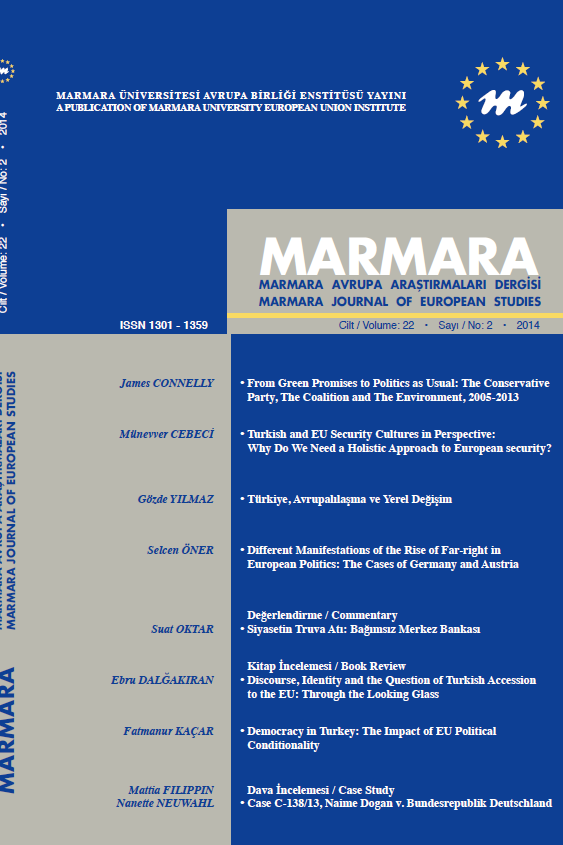THE EFFICIENCY OF HARMONISATION OF TURKISH BANKING REGULATION FOR RISK MANAGEMENT WITH THE EU
Turkey has adopted the Basel I international regulatory framework for risk management in accordance with the efforts to harmonize Turkish banking regulation with the EU Turkey will also adopt Basel II, which will be finalised by mid-2004 and implemented by end-2006. Basel frameworks are designed by G-10 and are enforceable in G-10. EU makes minor adjustments to the Basel risk management frameworks and immediately initiates parallel directives. The Basel frameworks require minimum capital adequacy for credit, market and lately for operational risks of banks. Credit, market and operational risks are the major determinants of individual bank(s) problems in G-10 and in the EU In Turkey, however, the systemic banking crises are due to institutional and also macroeconomic risks, mainly those of interest and exchange rate volatilities. The Basel framework increases the capital adequacy requirement ofbanks in Turkey but does not offer protection to the risks the banks in Turkey are exposed The harmonization of banking regulation of Turkey with the EU is important but the immunization of the system from crises will only be achieved with the adaptation o f the risk management framework to Turkey, rather than precise adoption o f the best practices.
THE EFFICIENCY OF HARMONISATION OF TURKISH BANKING REGULATION FOR RISK MANAGEMENT WITH THE EU
Turkey has adopted the Basel I international regulatory framework for risk management in accordance with the efforts to harmonize Turkish banking regulation with the EU Turkey will also adopt Basel II, which will be finalised by mid-2004 and implemented by end-2006. Basel frameworks are designed by G-10 and are enforceable in G-10. EU makes minor adjustments to the Basel risk management frameworks and immediately initiates parallel directives. The Basel frameworks require minimum capital adequacy for credit, market and lately for operational risks of banks. Credit, market and operational risks are the major determinants of individual bank(s) problems in G-10 and in the EU In Turkey, however, the systemic banking crises are due to institutional and also macroeconomic risks, mainly those of interest and exchange rate volatilities. The Basel framework increases the capital adequacy requirement ofbanks in Turkey but does not offer protection to the risks the banks in Turkey are exposed The harmonization of banking regulation of Turkey with the EU is important but the immunization of the system from crises will only be achieved with the adaptation o f the risk management framework to Turkey, rather than precise adoption o f the best practices.
